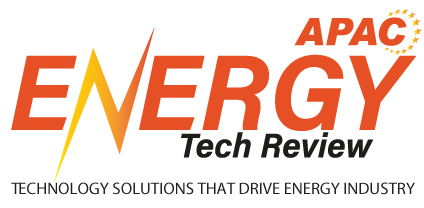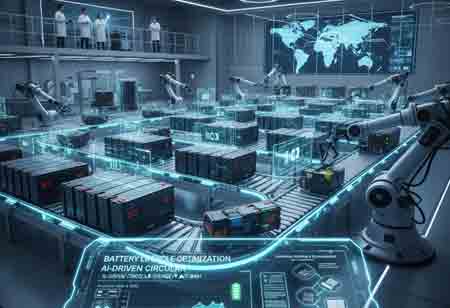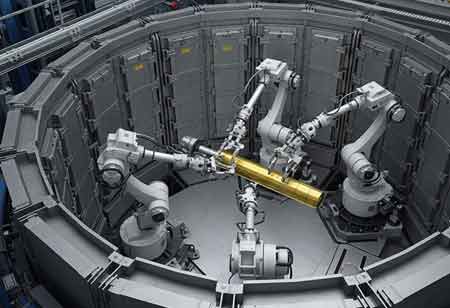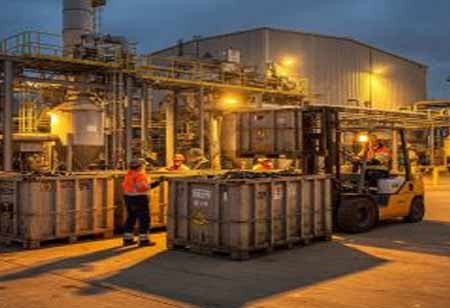CLOSE
Specials
I agree We use cookies on this website to enhance your user experience. By clicking any link on this page you are giving your consent for us to set cookies. More info
Be first to read the latest tech news, Industry Leader's Insights, and CIO interviews of medium and large enterprises exclusively from Energy Tech Review
Thank you for Subscribing
Nuclear Energy: Key to a Sustainable Tomorrow
Nuclear energy remains critical to the global transition to a low-carbon economy by addressing safety concerns, improving waste management, and leveraging technological advancements.
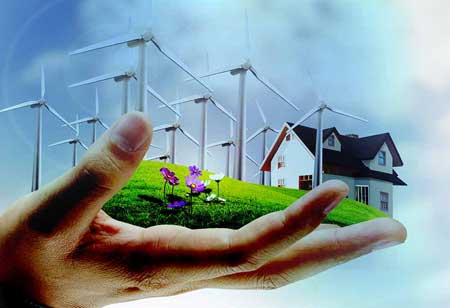
By
Energy Tech Review | Friday, September 05, 2025
Stay ahead of the industry with exclusive feature stories on the top companies, expert insights and the latest news delivered straight to your inbox. Subscribe today.
FREMONT, CA: The global community increasingly discusses nuclear energy as a sustainable solution to climate change, but misconceptions and outdated narratives often cloud these discussions.
Nuclear energy is one of the most reliable and consistent low-carbon electricity sources. Unlike renewable energy sources such as solar and wind, which are inherently intermittent, nuclear power plants operate continuously, ensuring a stable energy supply. This reliability enables atomic energy to meet peak energy demands and maintain grid stability even under adverse weather conditions.
As nations strive to achieve global net-zero emissions targets, nuclear power is central to decarbonization. With near-zero CO₂ emissions during electricity generation, it is comparable to wind and solar in terms of carbon footprint while offering more reliability. Additionally, nuclear energy reduces dependence on fossil fuels, providing an efficient and sustainable alternative to environmentally harmful and finite resources.
Despite its advantages, several misconceptions persist regarding nuclear energy. One of the most common myths is that nuclear power is inherently unsafe, often linked to historical accidents. However, these incidents resulted from outdated systems and inadequate emergency protocols. Modern atomic plants incorporate advanced safety technologies, including automated shutdown systems, passive cooling mechanisms, and enhanced containment structures, significantly reducing risks. Another widespread concern is the management of nuclear waste. While spent fuel requires careful handling, technological advancements have vastly improved waste processing and storage. Highly radioactive waste constitutes only a tiny portion of atomic byproducts, and solutions such as reprocessing and deep geological repositories, as implemented in Sweden and Finland, ensure secure and sustainable disposal. Additionally, critics argue that nuclear energy is prohibitively expensive due to high initial construction costs. However, long-term low operational costs offset these expenses, and innovations such as modular reactor designs are making nuclear projects more financially viable.
Advancements in nuclear technology continue to enhance its efficiency and feasibility. Small Modular Reactors (SMRs) represent a breakthrough, offering scalable, cost-effective solutions that can be deployed in remote locations with shorter construction timelines. Meanwhile, nuclear fusion research is progressing rapidly, with recent experiments achieving critical milestones in controlled fusion, generating energy with minimal radioactive waste and zero meltdown risk. Additionally, innovations in advanced fuel cycles, including fast breeder and molten salt reactors, aim to maximize fuel efficiency and minimize waste, further solidifying nuclear energy's role in a sustainable energy future.
Nuclear energy offers an indispensable solution to global energy and environmental challenges. As the planet strives towards a sustainable future, nuclear energy is a reliable, safe, and innovative pathway to meet the energy needs while protecting the planet.

Copyright © 2025 Energy Tech Review. All rights reserved
